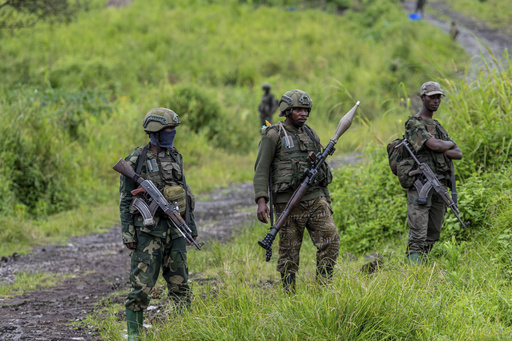
ARUSHA, Tanzania – Heads of state from East Africa convened on Saturday in an attempt to foster peace in eastern Congo, though the outlook appeared grim following a regional summit distinguished by the notable absence of the Congolese president and the premature departure of his Rwandan counterpart.
The summit culminated in a communique that emphasized the necessity of integrating regional and wider peace efforts to achieve lasting tranquility in eastern Congo.
The area has recently seen a resurgence of violence, contributing to one of the longest-standing conflicts in the world. The Congolese government has accused the M23 rebel group, which purportedly receives support from Rwanda, of engaging in “ethnic cleansing” in the mineral-rich territories nearing Rwanda’s border.
Rwandan President Paul Kagame exited shortly after the closed sessions, while there was no clarification offered regarding Congolese President Felix Tshisekedi’s absence from the discussions.
Congo has brought allegations against Rwanda, claiming involvement in war crimes within eastern territories, with both U.S. and U.N. experts asserting that Rwanda has provided military assistance to the M23 group. Although Rwanda refutes these accusations, it confirmed in February that it maintains troops and missile systems in eastern Congo to protect its own national security, citing the mobilization of Congolese military forces near the border as a concern. U.N. estimates suggest there may be as many as 4,000 Rwandan personnel deployed in Congo.
In July, a truce mediated by the United States and Angola helped to lessen hostilities between Rwandan and Congolese forces; however, clashes between the M23 and various other militias persist.
Attending the summit alongside Ruto were Presidents Salva Kiir of South Sudan, Samia Suluhu Hassan of Tanzania, William Ruto of Kenya, Yoweri Museveni of Uganda, and Hassan Sheikh Mohamud of Somalia, with Burundi represented by its vice president.
William Ruto was appointed as the new chairperson of the East African Community (EAC), succeeding Salva Kiir.
Ruto voiced that the focus should shift toward enhancing competitiveness, fostering value-added production, and promoting intra-regional trade as means to generate employment and transform economies within the region.
He also called for the commitment of the member states to ensure the timely release of statutory contributions essential for maintaining the operations of the bloc.

